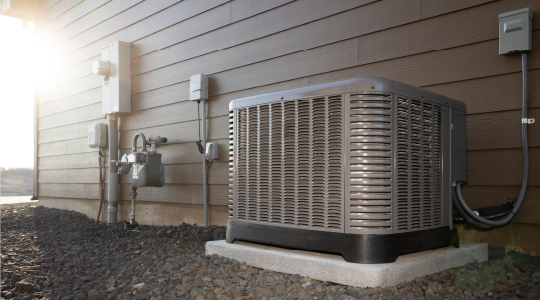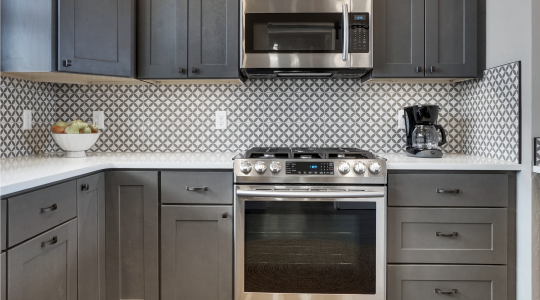Spring and Summer Energy-Saving Tips
There are ways to keep costs down when the weather is hot and you’re trying to keep your home cool. The following tips will save you money and energy throughout the spring and summer.
Curious about saving energy during the fall and winter? Check out these tips.
Close the blinds and check seals
- Close the blinds and curtains to keep your rooms from heating up too much and taking longer to cool down.
- Add caulk or weatherstripping to seal air leaks around leaky doors and windows to keep the hot air outside.
- Caulk is best for sealing air leaks through cracks or gaps throughout the home, like door and window frames. Weatherstripping is used to seal components that move, such as doors and operable windows.
Adjust the temperature
- Set the thermostat as high as you are comfortable with while you are home and awake.
- Keep your home warmer than normal when you are away from home. The smaller the difference between the indoor and outdoor temperatures, the lower your cooling bill will be!
- Do you own a smart thermostat, or you’re interested in one? Evergy's Thermostat Program makes it easy for you to schedule your temperature while you’re out and about.
- If you’re on a time-based plan, you can take advantage of lower off-peak prices by adjusting your thermostat and pre-cooling your home.
- Three hours before peak hours begin, schedule your thermostat to three degrees below your preferred temperature. For example, according to EPA recommendations, if your usual temperature is 73, turn it to 70.
- When peak hours begin, adjust your thermostat to three degrees above your preferred temperature (such as 76) to keep the unit from running too much.
- When peak hours end, schedule your thermostat back to your preferred setting.
Take advantage of your fans
- Make sure to turn off your ceiling fans when you leave the room. Fans cool people, not rooms, by creating a wind chill effect.
- Many ceiling fans come with a reversible motor. To make your fan the most energy efficient, switch its rotation when the seasons change.
- In the summer, fans should rotate counterclockwise to lift warm air up and out of the room.
- In the winter, fans should rotate clockwise to push the rising warm air back down into the room.
- When you shower or take a bath, use the bathroom fan to remove heat and humidity from your home.

Keep your cooling system running efficiently
- Schedule regular maintenance for your air conditioner.
- Clean out leaves, dirt and debris from your outdoor air conditioner when needed.
- Avoid placing lamps or TV sets near your room air-conditioning thermostat. The thermostat senses heat from these appliances, which can cause the air conditioner to run longer than necessary.
- Vacuum your air intake vents regularly to remove any dust buildup. Also, make sure that furniture and other objects are not blocking airflow through the vents.
Know your lighting options
- Use light-emitting diode (LED) lighting. LED light bulbs use at least 75% less energy, and last up to 25 times longer, than incandescent lighting. They also emit very little heat.
- Incandescent lights should be turned off whenever they are not needed, because 90% of the energy they use is given off as heat.
Consider your water temperature
- Turn the temperature of your water heater to the warm setting (120°F) to save energy. This video will show you how.
- Use less hot water.
- Take showers instead of baths. A shower could use 20 gallons of hot water in 10 minutes versus about 70 gallons needed to fill some bathtubs.
- In the kitchen, use cold water when using small amounts, like rinsing your vegetables.
Be mindful of your appliances
- Wait to run your dishwasher until it’s full.
- Set your washing machine to the appropriate water level and wash all but the dirtiest of loads in cold water.
- Set your refrigerator temperature between 35 and 38 degrees Fahrenheit and your freezer at 0, and make sure both are sealed tightly.
- When using your clothes dryer, make sure to clean the lint filter after each use and use the auto-dry or moisture-sensor setting.

Rethink how you cook and where you eat
- Whether you grill outside or eat dinner at your favorite restaurant, steering clear of your kitchen in the summer can reduce your energy bill. Plus, using the stove or oven can raise the temperature by 10 degrees!
- Use small appliances more often. Slow cookers, microwaves, air fryers and toaster ovens use much less energy than your stove or oven.